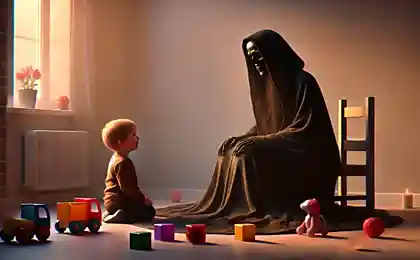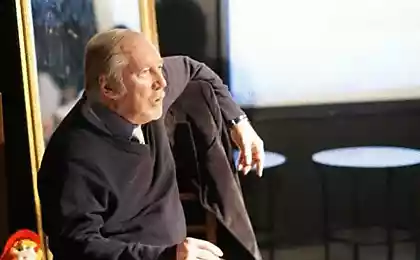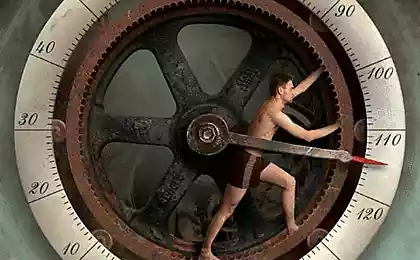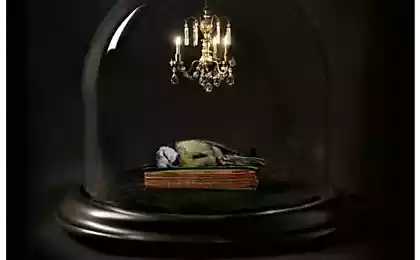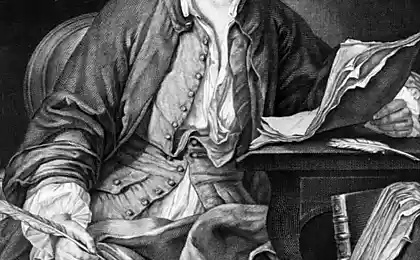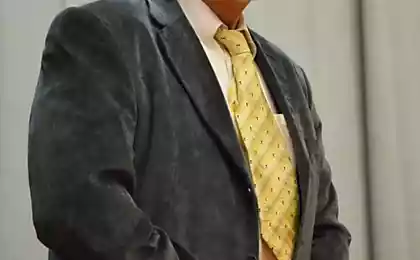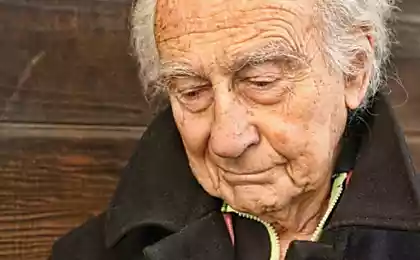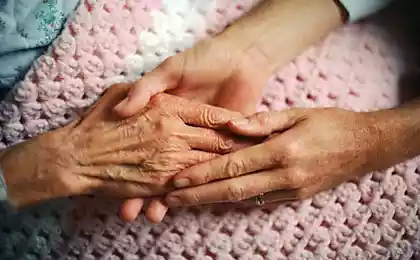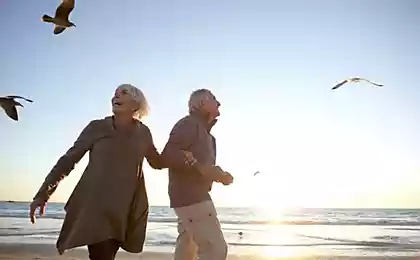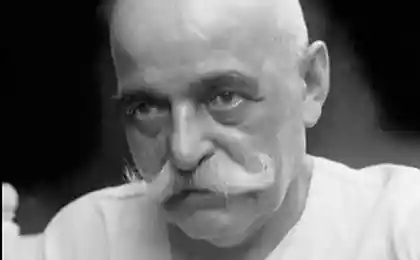507
BJ Miller: WHAT really matters at the end of life
If you don't want to go somewhere — don'T GO! What we most want in life? For many of us is comfort, respect, love. B. J. Miller is a doctor of the hospice, seriously reflecting on how to create a sophisticated environment for their leaving the lives of patients. Take time to enjoy this touching speech, which forces us to consider how we relate to death and how we honor life.
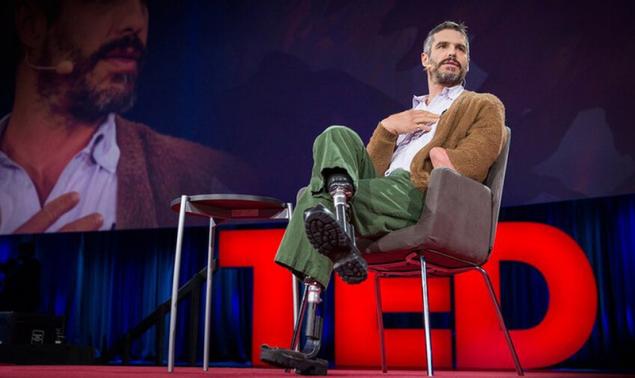
0:12
We all need a reason to Wake up. Which took me 11 000 volts.
0:21
I know you too well-mannered to ask, so I'll tell you.
0:26
One night many years ago, in the second year, right after I came back from thanksgiving, we and my friends were horsing around and decided to climb on the roof of a parked commuter train. He stood there, and over him hung a wire. Somehow at the time it seemed like a good idea. Of course, we did things and smart. I climbed the stairs to the rear of the car, and when straightened, the electric current hit me in the arm and swept down the body, going through legs, and everything. Believe it or not, this watch is still running. Die hard the watch!
https://embed.ted.com/talks/lang/ru/bj_miller_what_really_matters_at_the_end_of_life
1:08
(Laughter)
1:09
My dad wears them now as a sign of solidarity.
1:14
That night began my formal relationship with death, my death, had begun my long history as a patient. Good word — "patient". It means "suffering". So, perhaps, we are all patients.
1:30
The American health care system is seriously flawed, of course, it balances its splendor. I am a physician at a hospice doing palliative therapy, so I medicine known on both sides. And believe me, almost everyone who goes to work in healthcare, have good intentions — really. But we, medical professionals, and unwitting agents of the system that does not work very often.
2:02
Why? This question has a simple answer, which explains a lot: because the model of health care focused on disease, not people. Besides the model itself useless. And never worse than a bad idea so no crushes, and the need for the idea is not so necessary as at the end of life, when everything feels so sharp and concentrated.There is no possibility to redo anything.
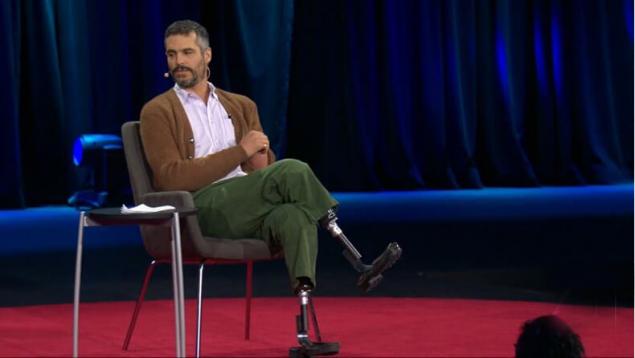
2:41
My goal today is to appeal to different disciplines and to bring design thinking to this serious conversation. That is, to make the intention and creativity in the process of dying. We have before us a tremendous opportunity, we are in front of one of the global challenges, as individuals and as civil society to rethink and change the way we die.
3:18
Let's start from the end. For many people, the most frightening part of death not being dead, and the dying anguish. This is a key distinction. If to consider more, it may be useful to separate the suffering that is inevitable from those that can be eliminated.The first is a natural, integral part of life. Under them we adapt, we create a place improved.
To understand the forces more powerful than us can be productive. It gives a sense of proportionality, as meditations on space. After my legs were amputated, this loss became a fixed fact, an inevitable part of my life, and I realized that I could no longer deny this fact, they can not deny himself. It took some time, but eventually I came to this.
Another fact about the inevitable sufferings: they are the reason for grouping together someone who cares, and that somebody you care about — bring people together. And then we finally understand where the real healing begins. Yes, compassion, which literally means, as we said yesterday, "joint suffering".
4:55
From the same system, with the other end of the situation, it adds so much unnecessary suffering was invented. Anything good they do not serve. But well at least that since this type of suffering created artificially, we are able to influence them. We really can affect how you die. Changing the system is more susceptible to the fundamental distinction between the inevitable and unnecessary suffering, we get the first of the three keys to creating successful project medicine. In the end, our job as doctors, as those who provide care — to relieve suffering, not to add them.
5:41
Faithful to the principles of palliative care, I work as a "thinking rock", but also as a doctor. A small note: palliative care is important, but understand wrong area — at least implies care until the end of life, but is not limited to this. It's not just a hospice. This is to ensure the comfort and well-being at any stage. So please remember: do not have to be at death's door to benefit from palliative therapy.
6:12
Now let me introduce you to Frank. He will help us as an example. I see Frank has been for many years. He lives with advanced prostate cancer on the background of prolonged HIV disease. We are working on it bone pain and fatigue, but most of the time we spend thinking out loud about life, and about life in General.
So Frank grieves. So he puts up with their losses as they arise, to be able to cope with the next moment. Losing is one thing, but regret is another.Frank has always been an adventurer — he even looks like a character of a Norman Rockwell painting — and he is not a supporter of regrets. So it was no surprise when one day he came to the clinic and said that he wants to raft on the Colorado river. It's a good idea that was?
With all its risks to health and safety, some would answer no. Many have said so, but he did it anyway till I could. It was a marvelous, wonderful adventure: ice water, scorching heat, Scorpions, snakes, howling wild with burning the walls of the Grand Canyon — all the splendor of the world beyond our control. The solution to Frank's, maybe a few and sudden, but it is one that many of us would have the support to figure out what is best for us in the future.
7:48
Much of what we are discussing today is a change of perspective. When after the accident I returned to University, I changed your major to art history. Studying fine art, I was hoping to learn how to see — a truly valuable lesson for a child who could not seriously affect what is seen. Perspective — a kind of alchemy with which we humans are accustomed to play, turns suffering into a flower.
8:20
Jumping ahead a little, now I work in one great place in San Francisco called "the Zen Hospice project", where we invented a little ritual that helps to change perspective. When one of our patients dies, people come from the morgue. We put the body through the garden, heading to the gate, and stopped. Everyone, other patients, family, nurses, volunteers, even the drivers of the hearse — share stories or song or just keep quiet until we sprinkle the body with flower petals.
It takes just a few minutes. So cute, simple farewell ceremony, to accept the sorrow with the warmth, than with disgust. Compare this with the typical situation in a hospital: a light-flooded room with tubes and buzzing equipment, without break, flashing lights, even after stopping the patient's life. Includes personnel for cleaning, take out the body — and the feeling that this man never existed.
Of course, well organized, from the standpoint of sterility, but the hospital hurt our feelings, and the best that can be expected in these walls, — numbness, anesthesia, that is diametrically opposite of sensitivity. I honor hospitals for what they do; I'm alive because of them. But there's too much we expect from them.It is a place of serious injuries and treatable diseases. This is not a place where you can die — not for that, they thought.
10:09
Keep in mind I'm not saying that these institutions cannot become more humane. Beauty can be found everywhere. I spent several months in the burn unit at St. Barnabas in Livingston, new Jersey, where at each stage I had really good care, including palliative therapy for my pain. One night it snowed.
Remember, as nurses complained that it was impossible to drive the car. In my room had no window, but it was nice even just to imagine how the street drops sticky snow. The next day one of the nurses brought me a snowball. She brought it to the house.Can't even describe to you my delight when I held it in my hand, and the cold drops fell on my burnt skin, what a miracle it was with some astonishment that I watched, like someone was melting, turning into water.
At the moment just to be a part of this planet in this universe meant more to me than whether I live or die. This snow was all I need for inspiration to try to survive or to accept, if it doesn't work. In the hospital is rare.
11:35
Over the years I have met many people who are ready to go, ready to die. And not because they have found some peace or understanding of the idea, but because their life, what it has become, they have caused only disgust, seemed to them, in a word, over, ugly. Now so many people live with chronic or incurable disease, and in more Mature age.
And we're not ready for this "silver tsunami". We need infrastructure that is dynamic enough to withstand these "seismic shifts" in the population. The time has come to create something new, something vital. I know we can, because there is no choice. The alternative is unacceptable. But the key ingredients are well known: policies, education and training, systems, buildings and equipment. We have tons of source material for designers of all stripes.
12:48
For example, from research we know that the people who will die soon, is considered the most important: comfort, opportunity to unburden themselves and a burden to those they love, harmony and a sense of wonder and spirituality.
13:07
For more than 30 years of experience "Zen Hospice" we learned many things from our patients.Detail is not so minor. Take, for example, Jeanette. Every day it increasingly difficult to breathe due to amyotrophic lateral sclerosis. And what do you think? She wants to smoke again, and certainly French cigarettes. Not because of some tendencies to self-destruction, and because of the desire to feel light, yet they are filled with smoke. A change of priorities.
Or, for example, Kate. She wants her dog Austin was lying at the foot of the bed, to feel his cold muzzle touches her dry skin, and not continue to drive on veins chemotherapy. And so she did. Sensitive, emotional satisfaction, which we then, in time, rewarded just for being what we are. So much boils down to loving feelings, a body that is the basis of life and death.
14:25
Perhaps the most touching room in the guest house "Zen Hospice" — the kitchen, which is strange when you realize that many of our patients eat very little, if at all eat. But we understand that support livelihoods at several levels: the smell, the symbolic level. Seriously, under our roof there is a lot of heavy events, with one of the most practiced and effective of the known procedures is the preparation of the biscuits.
We have the feelings — even just one — at least have the opportunity to participate in what makes us human, unites us. Imagine the value of this for the millions of people living and dying with dementia. The simple pleasures of touch, talking about what is beyond words; pulses, forcing us to stay in the present without past or future.
15:42
If the identification in the system of unnecessary suffering was the first key, the desire to preserve dignity through the senses, through the senses of the body — the area of sensuality — this is the second key. This immediately brings us to the third and final key — namely, the need to pay attention, to focus on wellbeing so that the health and zdravoohraneniem to make our life more beautiful, not just less unbearable. Mercy.
16:21
This is what distinguishes the model with a focus on the disease model with a focus on pazienti makes concern in a creative, evocative, even similar to the game act. The word "game" may seem strange. But it is one of the highest forms of adaptation. Take into account all the mandatory things required to be human. The need for food has created a cuisine.
The need for shelter created the architecture. Need something to hide the fashion. And watching the rhythm of time, we opened the music. And since death is part of life, what can this create? Speaking of "the game", I do not mean that the dying should be treated carelessly, or that there is only one true method.
There are mountains of sorrow, which cannot be moved, and sooner or later each of us will kneel. On the contrary, I ask you to provide space — physical, psychological — that life itself has brought the game to the end. I ask this not just out of the way. Aging and death may in the end lead to the climax. We can't decide for death. I know some of you are working on it.
17:51
(Laughter)
17:56
In the meantime, we can...
17:57
(Laughter)
17:59
We can create under this structure. Part of me has died before, and somehow this is true for each of us. I had to rebuild my life by this fact. And, frankly, it was such a relief to realize that you can always find beauty or meaning in the life that's coming to you, like in that snow, living as long as needed, until completely melted.If we so passionately love these moments, then you can probably learn to live better not in spite of death but because of it. Let death be what happens to us, not a lack of imagination.
18:47
Thank you.
18:48
(Applause).published
5 thieves of your life energy
If you don't want to go somewhere — don'T GO!
Source: www.ted.com/talks/bj_miller_what_really_matters_at_the_end_of_life?language=ru

0:12
We all need a reason to Wake up. Which took me 11 000 volts.
0:21
I know you too well-mannered to ask, so I'll tell you.
0:26
One night many years ago, in the second year, right after I came back from thanksgiving, we and my friends were horsing around and decided to climb on the roof of a parked commuter train. He stood there, and over him hung a wire. Somehow at the time it seemed like a good idea. Of course, we did things and smart. I climbed the stairs to the rear of the car, and when straightened, the electric current hit me in the arm and swept down the body, going through legs, and everything. Believe it or not, this watch is still running. Die hard the watch!
https://embed.ted.com/talks/lang/ru/bj_miller_what_really_matters_at_the_end_of_life
1:08
(Laughter)
1:09
My dad wears them now as a sign of solidarity.
1:14
That night began my formal relationship with death, my death, had begun my long history as a patient. Good word — "patient". It means "suffering". So, perhaps, we are all patients.
1:30
The American health care system is seriously flawed, of course, it balances its splendor. I am a physician at a hospice doing palliative therapy, so I medicine known on both sides. And believe me, almost everyone who goes to work in healthcare, have good intentions — really. But we, medical professionals, and unwitting agents of the system that does not work very often.
2:02
Why? This question has a simple answer, which explains a lot: because the model of health care focused on disease, not people. Besides the model itself useless. And never worse than a bad idea so no crushes, and the need for the idea is not so necessary as at the end of life, when everything feels so sharp and concentrated.There is no possibility to redo anything.

2:41
My goal today is to appeal to different disciplines and to bring design thinking to this serious conversation. That is, to make the intention and creativity in the process of dying. We have before us a tremendous opportunity, we are in front of one of the global challenges, as individuals and as civil society to rethink and change the way we die.
3:18
Let's start from the end. For many people, the most frightening part of death not being dead, and the dying anguish. This is a key distinction. If to consider more, it may be useful to separate the suffering that is inevitable from those that can be eliminated.The first is a natural, integral part of life. Under them we adapt, we create a place improved.
To understand the forces more powerful than us can be productive. It gives a sense of proportionality, as meditations on space. After my legs were amputated, this loss became a fixed fact, an inevitable part of my life, and I realized that I could no longer deny this fact, they can not deny himself. It took some time, but eventually I came to this.
Another fact about the inevitable sufferings: they are the reason for grouping together someone who cares, and that somebody you care about — bring people together. And then we finally understand where the real healing begins. Yes, compassion, which literally means, as we said yesterday, "joint suffering".
4:55
From the same system, with the other end of the situation, it adds so much unnecessary suffering was invented. Anything good they do not serve. But well at least that since this type of suffering created artificially, we are able to influence them. We really can affect how you die. Changing the system is more susceptible to the fundamental distinction between the inevitable and unnecessary suffering, we get the first of the three keys to creating successful project medicine. In the end, our job as doctors, as those who provide care — to relieve suffering, not to add them.
5:41
Faithful to the principles of palliative care, I work as a "thinking rock", but also as a doctor. A small note: palliative care is important, but understand wrong area — at least implies care until the end of life, but is not limited to this. It's not just a hospice. This is to ensure the comfort and well-being at any stage. So please remember: do not have to be at death's door to benefit from palliative therapy.
6:12
Now let me introduce you to Frank. He will help us as an example. I see Frank has been for many years. He lives with advanced prostate cancer on the background of prolonged HIV disease. We are working on it bone pain and fatigue, but most of the time we spend thinking out loud about life, and about life in General.
So Frank grieves. So he puts up with their losses as they arise, to be able to cope with the next moment. Losing is one thing, but regret is another.Frank has always been an adventurer — he even looks like a character of a Norman Rockwell painting — and he is not a supporter of regrets. So it was no surprise when one day he came to the clinic and said that he wants to raft on the Colorado river. It's a good idea that was?
With all its risks to health and safety, some would answer no. Many have said so, but he did it anyway till I could. It was a marvelous, wonderful adventure: ice water, scorching heat, Scorpions, snakes, howling wild with burning the walls of the Grand Canyon — all the splendor of the world beyond our control. The solution to Frank's, maybe a few and sudden, but it is one that many of us would have the support to figure out what is best for us in the future.
7:48
Much of what we are discussing today is a change of perspective. When after the accident I returned to University, I changed your major to art history. Studying fine art, I was hoping to learn how to see — a truly valuable lesson for a child who could not seriously affect what is seen. Perspective — a kind of alchemy with which we humans are accustomed to play, turns suffering into a flower.
8:20
Jumping ahead a little, now I work in one great place in San Francisco called "the Zen Hospice project", where we invented a little ritual that helps to change perspective. When one of our patients dies, people come from the morgue. We put the body through the garden, heading to the gate, and stopped. Everyone, other patients, family, nurses, volunteers, even the drivers of the hearse — share stories or song or just keep quiet until we sprinkle the body with flower petals.
It takes just a few minutes. So cute, simple farewell ceremony, to accept the sorrow with the warmth, than with disgust. Compare this with the typical situation in a hospital: a light-flooded room with tubes and buzzing equipment, without break, flashing lights, even after stopping the patient's life. Includes personnel for cleaning, take out the body — and the feeling that this man never existed.
Of course, well organized, from the standpoint of sterility, but the hospital hurt our feelings, and the best that can be expected in these walls, — numbness, anesthesia, that is diametrically opposite of sensitivity. I honor hospitals for what they do; I'm alive because of them. But there's too much we expect from them.It is a place of serious injuries and treatable diseases. This is not a place where you can die — not for that, they thought.
10:09
Keep in mind I'm not saying that these institutions cannot become more humane. Beauty can be found everywhere. I spent several months in the burn unit at St. Barnabas in Livingston, new Jersey, where at each stage I had really good care, including palliative therapy for my pain. One night it snowed.
Remember, as nurses complained that it was impossible to drive the car. In my room had no window, but it was nice even just to imagine how the street drops sticky snow. The next day one of the nurses brought me a snowball. She brought it to the house.Can't even describe to you my delight when I held it in my hand, and the cold drops fell on my burnt skin, what a miracle it was with some astonishment that I watched, like someone was melting, turning into water.
At the moment just to be a part of this planet in this universe meant more to me than whether I live or die. This snow was all I need for inspiration to try to survive or to accept, if it doesn't work. In the hospital is rare.
11:35
Over the years I have met many people who are ready to go, ready to die. And not because they have found some peace or understanding of the idea, but because their life, what it has become, they have caused only disgust, seemed to them, in a word, over, ugly. Now so many people live with chronic or incurable disease, and in more Mature age.
And we're not ready for this "silver tsunami". We need infrastructure that is dynamic enough to withstand these "seismic shifts" in the population. The time has come to create something new, something vital. I know we can, because there is no choice. The alternative is unacceptable. But the key ingredients are well known: policies, education and training, systems, buildings and equipment. We have tons of source material for designers of all stripes.
12:48
For example, from research we know that the people who will die soon, is considered the most important: comfort, opportunity to unburden themselves and a burden to those they love, harmony and a sense of wonder and spirituality.
13:07
For more than 30 years of experience "Zen Hospice" we learned many things from our patients.Detail is not so minor. Take, for example, Jeanette. Every day it increasingly difficult to breathe due to amyotrophic lateral sclerosis. And what do you think? She wants to smoke again, and certainly French cigarettes. Not because of some tendencies to self-destruction, and because of the desire to feel light, yet they are filled with smoke. A change of priorities.
Or, for example, Kate. She wants her dog Austin was lying at the foot of the bed, to feel his cold muzzle touches her dry skin, and not continue to drive on veins chemotherapy. And so she did. Sensitive, emotional satisfaction, which we then, in time, rewarded just for being what we are. So much boils down to loving feelings, a body that is the basis of life and death.
14:25
Perhaps the most touching room in the guest house "Zen Hospice" — the kitchen, which is strange when you realize that many of our patients eat very little, if at all eat. But we understand that support livelihoods at several levels: the smell, the symbolic level. Seriously, under our roof there is a lot of heavy events, with one of the most practiced and effective of the known procedures is the preparation of the biscuits.
We have the feelings — even just one — at least have the opportunity to participate in what makes us human, unites us. Imagine the value of this for the millions of people living and dying with dementia. The simple pleasures of touch, talking about what is beyond words; pulses, forcing us to stay in the present without past or future.
15:42
If the identification in the system of unnecessary suffering was the first key, the desire to preserve dignity through the senses, through the senses of the body — the area of sensuality — this is the second key. This immediately brings us to the third and final key — namely, the need to pay attention, to focus on wellbeing so that the health and zdravoohraneniem to make our life more beautiful, not just less unbearable. Mercy.
16:21
This is what distinguishes the model with a focus on the disease model with a focus on pazienti makes concern in a creative, evocative, even similar to the game act. The word "game" may seem strange. But it is one of the highest forms of adaptation. Take into account all the mandatory things required to be human. The need for food has created a cuisine.
The need for shelter created the architecture. Need something to hide the fashion. And watching the rhythm of time, we opened the music. And since death is part of life, what can this create? Speaking of "the game", I do not mean that the dying should be treated carelessly, or that there is only one true method.
There are mountains of sorrow, which cannot be moved, and sooner or later each of us will kneel. On the contrary, I ask you to provide space — physical, psychological — that life itself has brought the game to the end. I ask this not just out of the way. Aging and death may in the end lead to the climax. We can't decide for death. I know some of you are working on it.
17:51
(Laughter)
17:56
In the meantime, we can...
17:57
(Laughter)
17:59
We can create under this structure. Part of me has died before, and somehow this is true for each of us. I had to rebuild my life by this fact. And, frankly, it was such a relief to realize that you can always find beauty or meaning in the life that's coming to you, like in that snow, living as long as needed, until completely melted.If we so passionately love these moments, then you can probably learn to live better not in spite of death but because of it. Let death be what happens to us, not a lack of imagination.
18:47
Thank you.
18:48
(Applause).published
5 thieves of your life energy
If you don't want to go somewhere — don'T GO!
Source: www.ted.com/talks/bj_miller_what_really_matters_at_the_end_of_life?language=ru
